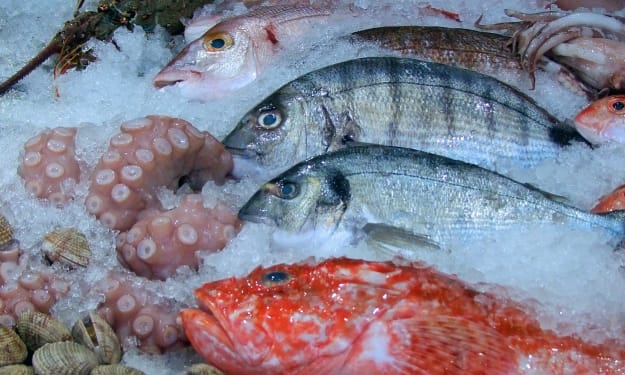Gordiano Lupi, "Alla ricerca della Piombino perduta"
A novel imbued with nostalgia

Only a reader born in the sixties can welcome this book by Gordiano Lupi, “In search of the lost Piombino”, with a commotion that turns you upside down and knots your throat. The author dedicates the first part to remembrance, to recherche, to retrace one’s steps. We are catapulted backwards, in the early sixties, in a Piombino that has just emerged from the miseries of war and is barely touched by a boom that the inhabitants don’t even notice. A Piombino that seems to leap out of a film by Virzì, divided in half between rich children and children of metalworkers and railway workers, between ice cream parlors and beach resorts where you only go on Sundays and small everyday bars on beaches smelling of stale frying. The love for these memories is absolute, visceral, unconditional. Lupi accepts everything from the past, the beautiful and the monstrous, the shining sea but also the polluted beaches, the undergrowth of the improvised football fields, the crumbling walls, the pungent smells, the steel mill, today a gigantic wreck of industrial archaeology, always looming, always present in the thoughts and words of the inhabitants. “They were romantic times”, he repeats to us. And it is in this romanticism that neorealism dissolves, transforming itself from ideology into sentiment. Everything was beautiful, everything had more grandeur, more thickness, more flavor, everything is embellished, emphasized by the memory. Even the decay, the dilapidation were languid and melancholy. Overbearing, in every chapter and on every page, the feeling of the failure of one’s existence, the idea that the best is now behind us. The dreams have not come true, the path has been interrupted, the aspirations have not materialised.
“He couldn’t understand that I wanted my father’s boat, to hunt sharks in the infinite ocean, to be overwhelmed like an old Cuban fisherman in an endless battle under the blazing sun and with my body dirty with salt. He couldn’t understand it.”
In reality, what we were looking for was already there, it was in those streets, in those beaches, in those bars, in those thorny ravines where you secluded yourself with a girl, in those dusty fields where you kicked a ball, in those third- vision cinemas where you crunched seeds and not popcorn, where the love for an art that would mark a lifetime grew, to the sound of peplum and Totò’s films. What we looked for without finding it, the corner of paradise, already existed and is now lost forever.
“The kids coming out of school, the raised terrace towards the islands, a waiting bus, my brother with a backpack full of books walking up the slope towards the accounting school, and for a moment I think that our corner of paradise was just this and we didn’t know.”
What we were chasing is gone and won’t come back, we’ve lost the chance to be happy. Faces and voices — of the father, of friends — are no longer there, they have left us alone, time is no longer “endless”. How insistently it is repeated that the past does not come back. How many times do we go over the same images, the same memories, as if repeating accredited the memories, corroborated them.
“Now nobody cares anymore. A world that has slipped away through the wounds of life, like sand between your fingers, like time that doesn’t return.”
Each chapter is a postcard illustrated by nostalgia, unsettling, heartbreaking, painful, full of regret for what was not and will never be again. If I too have to abandon myself to echoes, to reminiscences, to free literary associations, Antonella Boralevi’s Forte dei Marmi comes to mind, in “Before the wind”, or, who knows why, also “Bonjour tristesse”, by Françoise Sagan perhaps because of the melancholy that permeates every word of the book.
The second part is dedicated to the reconstruction of the life of the writer Aldo Zelli, who arrived in Piombino after an adventurous existence between Libya and a life as a prisoner of war in various parts of the world. The publishing house il Foglio Letterario is dealing with this author and with the reprinting of some of his works of scholastic interest. Here Lupi assumes his identity, makes him speak in the first person, makes him recall the past — even his friendship with Guelfo Civinini — through the plots of his imaginative and disengaged narrative. Again, nostalgia is a canon, a pervasive, indispensable norm. Aldo celebrates his youth in Libya, among deserts, dunes moved by the wind, dromedaries and “dancing” chameleons, with the sudden irruption of reality to break the childhood dream, to make him suddenly mature.
“Life is unfair. I understand it for the first time and I’m only eight years old. There are no rules. There are no principles. There are no dreams to fulfill. There is a cursed destiny being fulfilled.”
And here too, as in the Piombino part, the speaker continually wonders about the nature and meaning of being a writer, about the creative process, about the imagination, about the way the stories in the mind of the authors are born, take body and develop. In that “I write a story as, as a boy, I would have liked an adult to tell me” there is a whole poetics of the fantastic, a pure story-telling ability that has been lost in today’s narrative, especially in Italy. The work is written in an elegant, lyrical language that is not ashamed to stir, to flood with emotions, to aim directly at the heart, without indulging in stinging parataxis, in useless symbolisms, in strident modernisms that are too often mannered. A book for which the word “beautiful” is stripped of the wear and tear of abuse and shines again.
About the Creator
Patrizia Poli
Patrizia Poli was born in Livorno in 1961. Writer of fiction and blogger, she published seven novels.
Enjoyed the story? Support the Creator.
Subscribe for free to receive all their stories in your feed. You could also pledge your support or give them a one-off tip, letting them know you appreciate their work.






Comments
There are no comments for this story
Be the first to respond and start the conversation.